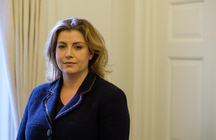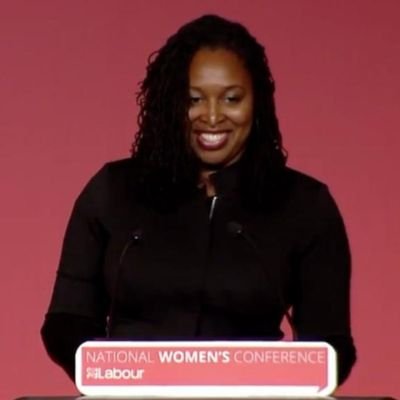Penny Mordaunt – 2019 Statement on Ebola
Below is the text of the statement made by Penny Mordaunt, the Secretary of State for International Development, in the House of Commons on 4 April 2019.
The number of cases of Ebola in the outbreak in the Democratic Republic of Congo (DRC) has recently passed 1000. Given this, it is both proper and timely to update the House on the steps which the UK Government are taking to continue to support the response in DRC and to ensure robust and effective preparedness in neighbouring countries.
Since I last updated the House on 14 February, there has been an increase in the number of confirmed and probable cases of the Ebola Virus Disease (EVD) in eastern DRC. As of 31 March 2019, 1,089 Ebola cases have been recorded (1,023 confirmed and 66 probable) and 679 people have died. Twenty-one health zones have been affected and 12 are currently reporting active new cases.
Despite the success of the response in curbing the disease in a number of health zones, the outbreak is still not under control. The last few weeks have seen a substantial increase in the number of cases reported, and the security context remains extremely challenging. In late February, two Médecins Sans Frontières Ebola treatment centres were attacked in Butembo and Katwa. The UK condemns these attacks in the strongest of terms; health workers fighting this disease should never be the target of violence and nor should patients. However, I am pleased to note that the affected treatment centres have now re-opened, run for the moment by the Government of DRC’s Ministry of Health in collaboration with the World Health Organisation (WHO) and the United Nations Children’s Fund (UNICEF), both of whom the UK is supporting.
The attacks underline the difficulty of responding to this outbreak in an area of ongoing conflict, and the vital importance of strengthening community engagement to break the chain of transmission. Despite the challenges faced there has not been a rapid rise in cases as was seen during the West Africa outbreak in 2014-16.
With UK support and technical advice, the response is now shifting to become more locally-owned, including through the hiring and training of more local staff, which will have the additional benefit of building longer-term health capacity and resilience. The response communications strategy has been revised to ensure that messages come primarily from local, influential leaders and figureheads.
The UK remains one of the major supporters of the response and DFID has recently released new funds to the third strategic response plan for this outbreak. Some of this new funding has been used to target specific areas of the response that need strengthening, particularly around infection prevention and control, and water, sanitation and hygiene. The vaccination campaign remains a key element of the response, with over 93 thousand people vaccinated in DRC so far. Once again, at the request of the Government of DRC who are leading the response I am not announcing specific funding figures to avoid putting front-line responders at further risk of attack.
As mentioned in my statement to the House on 26 March regarding Cyclone Idai, I recently spoke with both Dr Tedros Adhanom Ghebreyesus, Director-General of the WHO, and Sir Mark Lowcock, Head of the United Nations Office for the Co-ordination of Humanitarian Affairs (OCHA), to underline UK support and urge further measures on the part of the UN system in tackling the outbreak. We welcome WHO and OCHA strengthening their leadership in-country to support the DRC Government in delivering an effective response.
There remains a significant risk of transmission to neighbouring countries and measures are being taken to prepare accordingly. The UK is leading donor efforts to support regional preparedness. In Uganda we have supported the vaccination of 4,420 front-line health workers, with a further 1,000 planned over the next month. We have also helped establish a screening facility at the border with DRC. In Rwanda we have strengthened surveillance activities at borders, carried out infection prevention and control training, and supported the roll out of vaccinations for at-risk health workers. We have also supported similar activities including in South Sudan, and have recently deployed staff to strengthen efforts in Burundi.
The risk of Ebola to the UK population remains very low. Public Health England continues to monitor the situation daily and review the risk assessment on a two-weekly basis.
The UK is committed to supporting our partners to end this outbreak of Ebola as quickly as possible. We have continued our “no regrets” approach, providing both funding and expertise—recognising that this is an international crisis that both requires and deserves a sustained international response. Tackling the spread of deadly diseases in Africa is firmly in our national interest—saving lives, reducing suffering, and helping prevent transmission across borders.


